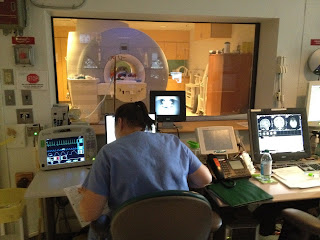Other Scans for AAA: CT
What is a CT scan and why do I need one?
A computerized tomography (CT) scan combines a series of X-ray images captured from different angles and utilizes computer processing to produce image slices. It gives clearer images and more depth to the bones, vessels, and organs.therefore, it is used to scan patients that show symptoms and are suspected to have AAA. Contrast-Enhanced CT (CECT) may also be used to examine patients that do not show symptoms but have an aneurysm bigger than 5.5cm.
How does CT scanning work?
A typical abdominal CT scan takes about 10 to 30 minutes. you will be asked to lie down on the procedure table. With the use of a remote control from a separate room, the technician will move the table into the CT machine, which looks like a giant doughnut comprised of metal and plastic. You will most likely go through the machine several times before the exam is complete. The X-ray tubes in the machine will emit radiation beams that will go through your body and hit the detector on the other side. Those will them be transmitted to a computer to create slice images of your abdomen.
CT Patient Preparation and What to Expect on the Day:
You may be asked to fast for a few hours before the scan and to drink lots of water. Accessories and jewellery should be removed.
On the day, you may be given a contrast agent. This is a dye that makes certain parts of your body more visible in the final image. The radiographer will then ask you to lie down on a table. You may be strapped down to prevent you from moving, but this is nothing to worry about; it is to ensure that movement does not occur and cause a blurry picture. If you experience claustrophobia you should discuss this with the radiographer so that they can accommodate your wishes.
After the scan, you can resume your daily routine. If you have had a contrast agent you may be asked to wait before leaving to ensure that you do not have any reactions to the dye. You should stay hydrated in order to help your kidneys to remove the contrast agent from your system.
 |
| CT scan procedure ( Source: https://www.vanderbilthealth.com/radiology/49780 ) |
The results will be sent to your referring doctor who will discuss the results with you later.



Comments
Post a Comment